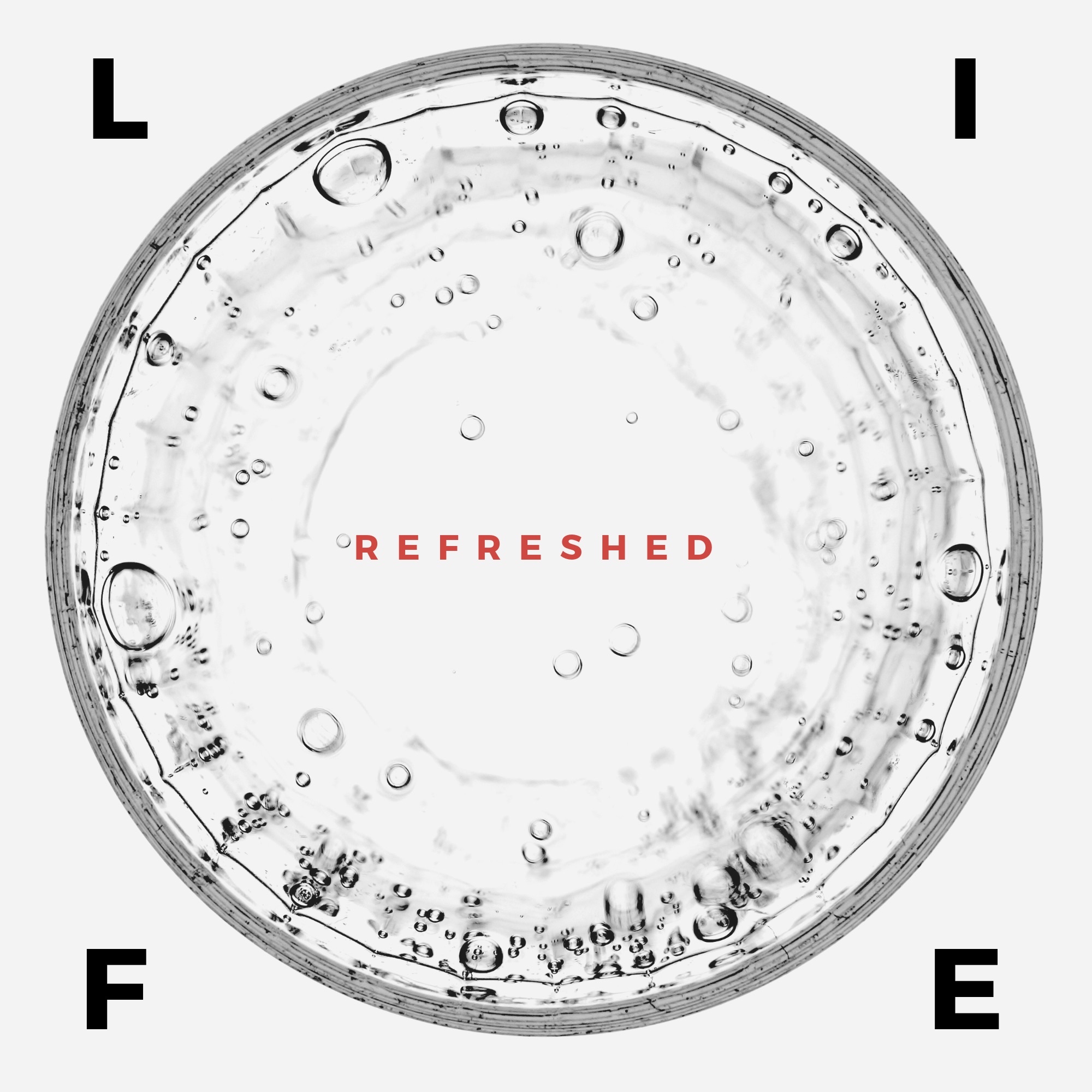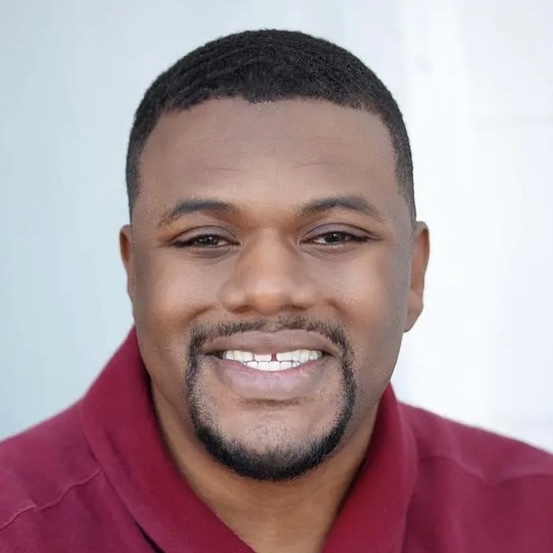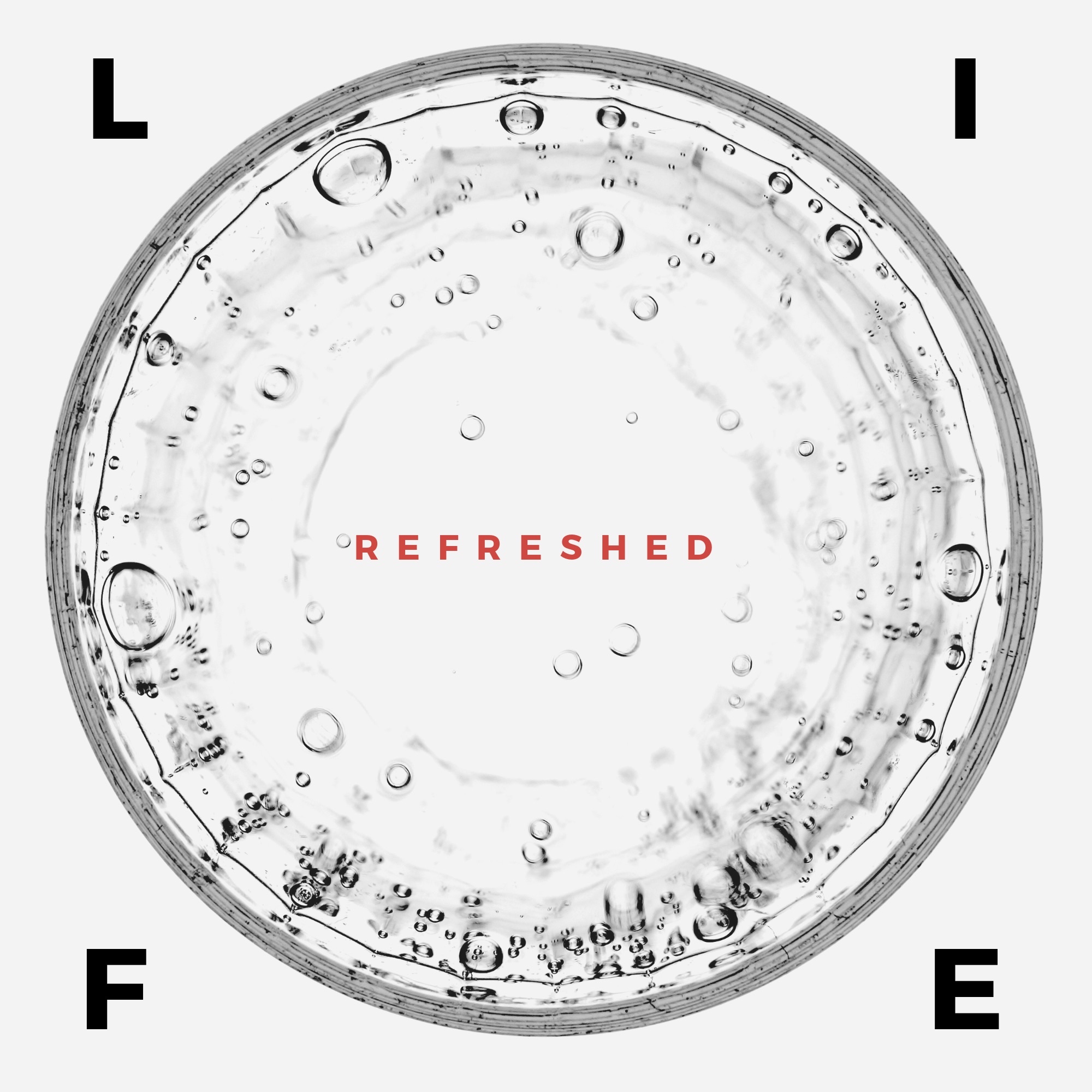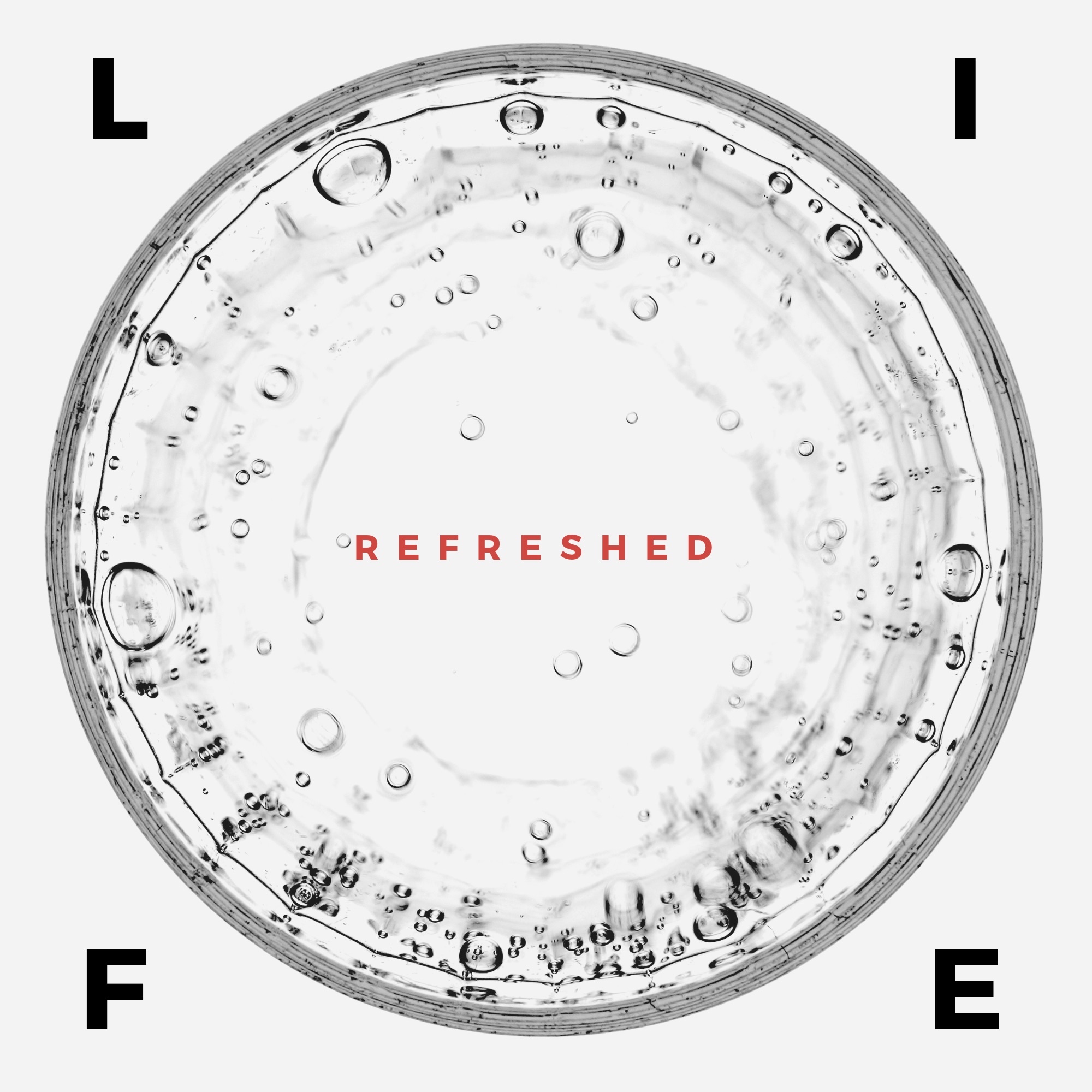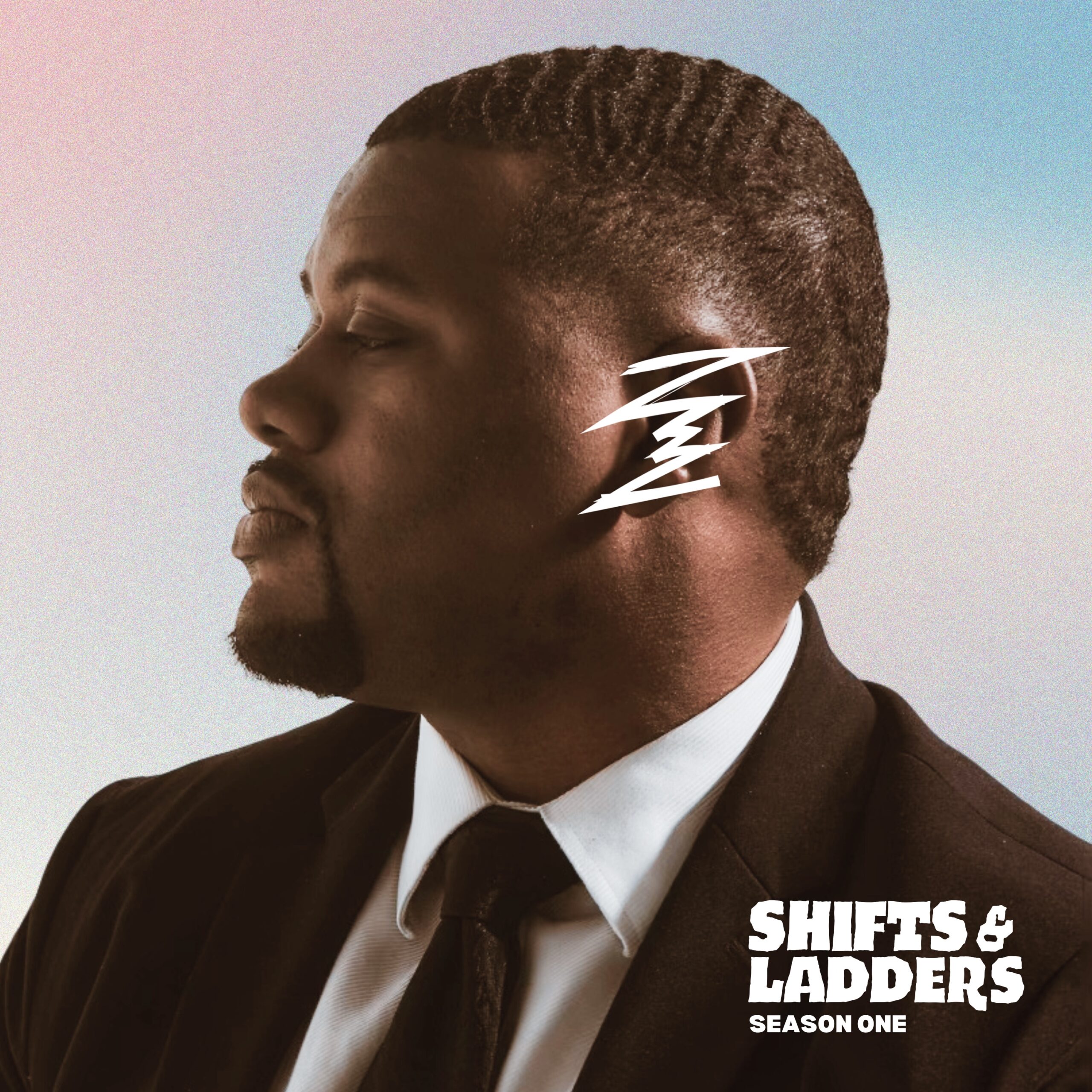Episode Transcript
Speaker 1 00:00:13 Welcome to the life refresh podcast. My name is Ryan Robinson. And if you were looking for a podcast that is designed to uplift, encourage, and revive your heart, mind, and spirit, you're in the right place. Welcome to the journey of becoming the version of you. God designed for the foundations of the now.
Speaker 1 00:00:49 Hello, and thank you for tuning into the podcast. Um, I am super excited to be recording this podcast in the year of 2022. Uh, welcome. You've all made it. It's been a while. I talked to you guys last year on this podcast, but really excited to get going on this year, this particular year. Um, especially, especially, uh, with everything still going on in our world, uh, with the pandemic and everything that's going on. But I, I wanted to really take some time, particularly with this being the first, uh, month where the year is filled with individuals going after resolutions creating goals and all the things that we usually depict for a new year. So it's a new you, it's a new goal. It's a new version of, uh, activating something in you. And most of us usually are, have a litany of things that we've listed out or things that we want to do in this, in this new year, really a year of refreshing, which obviously is the name of the podcast.
Speaker 1 00:02:03 But I really believe that there are times particularly when we're getting started, that we need to make sure we're heading the right direction. And this is one of the things I personally have to do for myself. I actually on my Twitter account, I follow a, uh, an account called year underscore progress. And it is a, it's like a goodness when you have, when you're loading new software or you're downloading something on your computer, it gives you like a status bar. So what this account is designed to do is to create a status bar of how much a year has gone by until the end of the year. And then obviously it renews at the top of the year. So, uh, I was checking this out yesterday and it said that we are at 5% of 2022, and it creates a bit of a sense of urgency for me.
Speaker 1 00:03:07 I didn't last year, I really didn't open my Twitter account because of all the stuff that happens in Twitter, right. But I wanted to really find something that could give me progress of how much year I have left and how much time I have left for my goals and the things that I have put out for myself to do. And I usually read books ahead of time of, you know, trying to get myself prepared before the year gets here. And one of the books that I've read is atomic habits by James clear. And it is a New York times bestselling book about habits and atomic habits. And, uh, it's essentially really focusing on the small things that build into sustainable things. And Adam's obviously with the word, atomic is really the microscopic, the 1% you do a day that can get you to the end goal.
Speaker 1 00:04:10 But one of the things that stood out to me is he has this diagram of three circles, a small circle, a circle over that kind of like a target and it is in three phases. So the outer ring is the outcome ring. The outcome ring is the, what you want to do. That's the end goal, or you wanna, uh, you know, you want to bench 300 pounds or you want to lose, uh, 23 pounds and have this amount of waste, whatever. The second inner ring is the ring of process. And it is like, what are the steps to do those things? And many of us, we know how to do that. We know how to work it back, reverse engineer it, right? So in order for me to, uh, you know, lift 300 pounds, I need to work out, I need to lift so much weight this many times a week and make sure that I'm eating and those kinds of things.
Speaker 1 00:05:12 So, you know, we got the steps. We can go back and figure out, you know, these are the steps to get to set goal. But the big thing, I would say the key stone of anything staying longer than just a few months is the identity of the person. So for example, if, uh, continuing on the example, I want to be identify with being a healthy, strong individual. So starting with that identity, working inside out, instead of outside in what is the progress or the process that healthy people exhibit in order to create the outcome that I want to have so healthy people get rest. They, they make sure they're good on their nutrition. They find a regular workout routine. They find what works best for them. They do the nutrition, they do the things necessary in order to lose the weight, to be who they want to be come.
Speaker 1 00:06:20 So you always have to check yourself because again, the process and the outcomes, very easy to say in detail, but becoming the person that you want to be that does those things that is going to keep you longer in that progress. So it's not just a goal that once you've obtained it, it becomes like a, another tally on the wall. It now becomes something that you are someone you be have become. So with that being said, um, that book obviously has really kick-started my year, but, um, I wanted to really get to an and I had to reevaluate some of my goals for myself because most of my goals were outcome goals and process goals. I'm good with process. I'm good with the outcomes, but who do I want to be first in order to do the things that I aspire to do? And those are some really, it's a really serious and deep question, but, um, it, it, uh, it's been really odd during the time of me reading this book.
Speaker 1 00:07:37 Um, the holiday season was really great for my family and I, and, um, you know, with everything going on, it's been really hard to, um, I would say, uh, anchor these ideas and hopes that I have in some reality or in some evidence, right. Um, there, there is a, um, another book that I'm a reference, a very great classic called necessary endings by Dr. Henry cloud. And, uh, he exposes something that us as people, uh, in, in the world have, which is this power of hope, the power of hope. So, uh, hope we hope in, you know, we can hope that we make our goals. I mean, we hope that things will work out at, at, uh, with our relationships. We think there's things that we hope for. And, uh, it's a very powerful thing. Hope once you put your hope in something or in someone, it is very, very hard to detach that it almost keeps you in things longer than you would have hoped for.
Speaker 1 00:08:55 You actually are tied to whatever you have set your belief to do. And for some reason, hope is always giving is like, you know what? I'll give this person another chance, even when they hurt my feelings or, you know, I hope that things get better, or I hope, and we use this word hope so often that we get it quite confused. And the author Dr. Cloud says that hope is such an incredible gift. If it is placed in the correct person and space. And the thing is in order for hope to be present here, it is, there has to be some evidence there in order for it to be anchored properly in your life. In order for hope to be present, there must be some kind of evidence that a change is possible for you. So if you're trying to lose weight and you've lost weight before the likelihood of you achieving a different kind of goal like finishing school or pursuing a different level of education is possible because I have seen you do and achieve in one area, therefore hope can be transferred to another area. So that gives the hope. So I'm like, you know what, I, I believe that you can do that, you know, or they believe, or you believe that you can do, I've done it over here in this space. I can just transfer that level of hope to a different area of my life and apply that same thing. Now, at some point there are some times, or say some areas in our life where our hope isn't anchored in evidence.
Speaker 1 00:11:04 It's not anchored in evidence. So you're not hoping. You're just wishing you are just wishing. Now here, here's a great example, and I might get killed for this, but it's okay. Um, many fans of teams like the Browns or the jets, the New York jets, or the Cleveland Browns have hope that they will have a great football season every year, every year they have, they get, they get some evidence, they might get a great draft, a quarterback, or they might, you know, they might change GM. They might have a different coach. There become some kind of evidence that there is hope, right? But over time that evidence starts to dissipate and anger starts to take place. So the question is, as you're going through your goals and making sure you're achieving the things that you are believing for yourself, are you hoping for things to change this year?
Speaker 1 00:12:18 Do you have any evidence of that, or are you wishing for things to change and not have not given you any evidence, given yourself any evidence of those kinds of changes? So in order to give yourself the evidence or to put hope in there, it has to start small. It has to start small. If you want to be a writer, you got to start writing so that you can develop the hope in order to continue in the goal. If you don't write one sentence a day, it's very simple. You don't have any evidence that you can become a writer. If you haven't been a person who has been drinking water every day, you don't have any evidence that you can live a healthy lifestyle, but it really starts with doing things small because those ideas, those small ideas build into realities. And until we take the time and really be patient enough to identify what it takes, to become a person of blank and build 1% every day, a little bit here, a little bit there before, you know it, you have built something.
Speaker 1 00:13:54 I don't, uh, many people, um, I'm, I'm one of many that are read, uh, will Smith's memoir is a great read actually. Um, and one of the things that, uh, will Smith talks about is how he and his brother built a wall. And it was just him and his brother. I don't know how long, I can't remember how long it took, but it was literally, they laid brick by brick, in the sunshine, in the cold. They literally built a wall brick by brick, and they filled it up. They figured it out, but it was literally, they were like, how are we going to, like you asking this grown man, their dad, their father asked them to build a wall. And I can't, they were young kids too. And that is what we're trying to do. We just look straight to the end goal, the outcome, but don't realize that it takes small steps to build to it.
Speaker 1 00:14:58 The Bible says don't despise the day of small beginnings. Therefore we need to take joy in the small stuff every day, because it's the things now that will build the thing we want later. And I'm going back will Smith. After they finished the wall, I think it was done in the summer. I was like, maybe it was a, it was a wall that could have took a regular contractor, like three and a half weeks to do. Maybe I think it was like two weeks or something. But, uh, he said, their father said, we'll say finish. He said, don't tell me you can't build nothing.
Speaker 1 00:15:39 He said, don't tell me you can't build nothing, but laying it brick by brick. They built something. They, that was bigger than them because they decided to take one brick one step at a time. Therefore they had evidence, small bits of evidence that added up to a major thing that they never thought they could do. So as we are at 5% of 2020 to anchor your ideas and hope and give yourself evidence that your outcome is possible. I guarantee by this time, next year, you'll be looking back and saying, I'm glad I started with 1%. And that your life will be just a little bit better until you got to build the next
Speaker 0 00:16:35 Wall.
Speaker 1 00:16:39 Thank you for tuning into the life refresh podcast. There are three things I'll need you to do before you go one, subscribe to this podcast, whether it be through apple podcasts, Google podcasts, Spotify, every you listen to podcasts, make sure that you subscribe to get the latest episode in your feed to rank the podcast. If you liked what you heard today, make sure you give it a great rating on those platforms. You help get us the exposure we need to make art message much broader and reach a different audience. And three, make sure you share this episode. I guarantee and found value in it. Someone you're connected to will find value as well, but that said, take care and tune in to the next episode of life.
